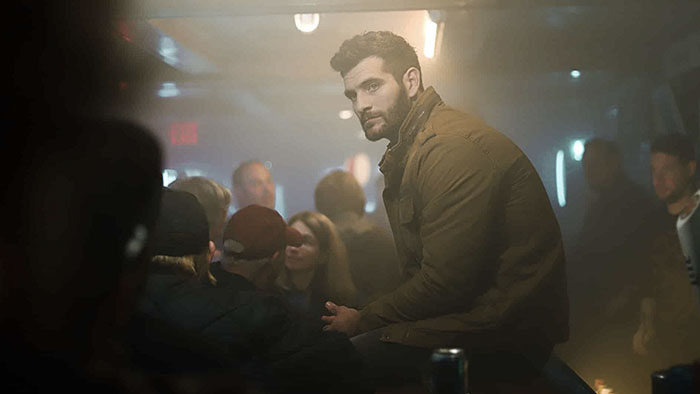‘Shooting Heroin’: Film Review
By Owen Gleiberman
LOS ANGELES (Variety.com) – In the next few years, I predict someone is going to make a staggering drama about the opioid crisis — a filmmaker like, say, Debra Granik (whose first feature, “Down to the Bone,” was a lacerating drug drama), or maybe Kent Jones or Kathryn Bigelow or Steven Soderbergh. It will, of course, be a film about something much larger than drug addiction, one that confronts the disappearance of jobs, the cycles of hopelessness and rage, the gambits of pharmaceutical companies, and the loss of faith in the system (and the future) that has hollowed out the heartland. That’s a story that needs telling, and if it touches on the reasons so many Middle Americans have embraced a fascist used-car salesman as their political savior, then all the better.
“Shooting Heroin,” an indie drama written and directed by Spencer T. Folmar with some feeling and skill, is like a rough compelling sketch for that movie. It’s set in the Pennsylvania backwater of Whispering Pines, a small-town community that the film presents as a traditional but desolate place, all overcast skies and isolated homes and roadside bars with zero atmosphere and ceilings that seem to be closing in on you.
Alan Powell, a very good actor who evokes the brooding, explosive side of Bradley Cooper, plays Adam, a U.S. combat veteran (it’s not specified if he was in Iraq or Afghanistan) who is also a single father with a two-year-old angelic blond tyke and a couple of ex-wives. His life seems a bit of a mess, but at least it’s a stable one. His sister, Cheyenne (Daniella Mason), isn’t so lucky. She’s a recovering addict who has been clean for three years, but when a bash on the head lands her in the hospital, she is given a morphine drip for the pain. That’s enough to spin her back to old habits.
“Shooting Heroin” is about a town that’s been ravaged by heroin. Hazel, played with disconsolate fervor by Sherilyn Fenn, is a mother who lost her two sons within 12 hours “to the same needle.” We hear about an eighth-grade girl who OD’d in the boys’ room, and once Cheyenne gets home, she relapses with all the trimmings, hiding her stash around the house so that even Adam, who’s supposed to be looking after her, can’t lasso the problem.
When she, too, dies of an overdose, it sends him into a tailspin. He needs a villain to pin the tragedy on — and, indeed, the whole town is looking for a villain. In this case, it’s standing right in front of them: the drug dealers. The snakes who’ve poisoned their community. Drunk and desolate, skulking up to a kid who’s shooting up right at the bar, Powell, as Adam, acts with the kind of hair-trigger violence that can magnetize a scene. You sense where all this is heading: to a place of “redneck justice.”
Yet “Shooting Heroin” isn’t some demagogic B-movie thriller that should have been called “Death Wish v. Narcotic Nation.” It’s a rational vigilante drama. Adam, Hazel, and a furious local named Edward (Lawrence Hilton-Jacobs), who wants to solve the problem “by any means necessary,” form a task force and get themselves deputized, which allows them to go on undercover missions. They’re like the Charles Bronson wing of the PTA.
Adam, faking a leg injury, visits a doctor and gets an oversize Oxycodone subscription as easily as if it were a Band-Aid; the woman at the local pharmacy fills it without blinking an eye. Then Adam chases down a young heroin dealer on his motorbike, scaring the Jesus out of him. But these turn out to be empty tactics. “It’s a national epidemic,” admits Adam. “Did we actually think we were going to make a difference?” Perhaps not, but only when Adam is brandishing his rifle in the face of the man he blames for everything does the deeper truth emerge.
“Shooting Heroin” gives the emotions of vengeance a minor workout, only to come out the other side of them. The film argues, in theory, for a richer understanding of the problem. Yet as , an entity that has taken over an innocent community. No one would argue with the fingers it points — at drug dealers, always the scuzziest of scoundrels, and at drug companies. Yet when someone finally make that great drama about our national addictions, it will need to be a more complex horror film. This one is a little too much “Alien Invaders,” not enough “They Came From Within.”

